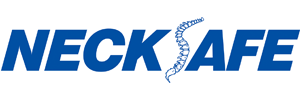Player, family, friends & colleague information
After a head impact or episode where concussion is suspected, the athlete must be removed from the field and not return to the game or practice.
Emergency first aid in the form of Basic life support resuscitation must be given if there is any compromise to the airway, breathing or circulation at any stage.
Special attention must also be given to the cervical spine, as any impact capable of causing concussion may be enough to also cause a spinal cord injury
In the absence of any threat to life, information must be given to the player and those that will accompany them after the episode.
Problems can occur over 24 to 48 after the initial injury and the player should not be left on their own during this period is at all possible.
They should go to hospital immediately should they:
- have a headache that gets worse
- be drowsy or unable to be roused
- exhibit slurring of speech, confusion, irritability, unsteadiness or other signs of abnormal coordination
- vomit repeatedly
- complain of weakness or numbness of the arms or legs
- have a seizure
If there is any doubt as to the well-being of the injured player a doctor or hospital must be consulted.
- Any athlete suspected of having a concussion should be removed from play, not return to play that day and then seek medical evaluation.
- Signs to watch for (player, family, friends and colleagues)
- Problems can arise over the first 24 – 48 hours
- The player should not be left alone and must go to a hospital at once if they:
- Have a headache that gets worse
- Are very drowsy or can’t be awakened
- Can’t recognise people or places
- Have slurred speech
- Behave unusually or seem confused
- Are very irritable
- Are unsteady on their feet
- Have repeated vomiting
- Have weak or numb arms or legs
- Have seizures (arms and legs jerk uncontrollably)
Remember, it is better to be safe. Consult a doctor or hospital after a suspected concussion.


